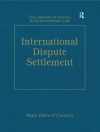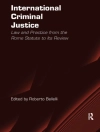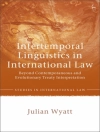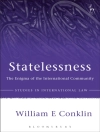This book focuses on protection needs and new aspects of personality and data protection rights on the Internet, presenting a comprehensive review that discusses and compares international, European and national (Brazilian, German, Pakistani) perspectives. It deals with overarching questions, such as whether universal minimum standards of privacy protection can be developed or how regional data protection rights can be safeguarded and enforced extraterritorially, given the conditions of the Internet. Furthermore, the book addresses new challenges and novel rights, e. g., data retention and protection against mass surveillance, the right to be forgotten, rights to anonymity, legal issues of the digital estate or rights relating to algorithmic decision-making. Furthermore, the book explores how well-known paradigms, such as liability for personality rights violations or damages, have to be adapted in view of the significant role of intermediaries.
Innehållsförteckning
Personality and Data Protection Rights on the Internet: Introduction.- Privacy Protection in the World Wide Web—Legal Perspectives on Accomplishing a Mission Impossible.- Personality Rights in Brazilian Data Protection Law: A Historical Perspective.- Realizing the Fundamental Right to Data Protection in a Digitized Society.- Surveillance and Data Protection Rights: Data Retention and Access to Telecommunications Data.- Privacy Protection with Regard to (Tele-) Communications Surveillance and Data Retention.- The Protection of Personality in the Digital Environment.- Forgetting as a Social Concept. Contextualizing the Right to Be Forgotten.- Brazilian Internet Bill of Rights: The Five Roles of Freedom of Expression.- Civil Rights Framework of the Internet (BCRFI; Marco Civil da Internet): Advance or Setback? Civil Liability for Damage Derived from Content Generated by Third Party.- Self-regulation in Online Content Platforms and the Protection of Personality Rights.- Regulating Intermediaries to Protect Personality Rights Online—The Case of the German Netz DG.- Online Anonymity—The Achilles’-Heel of the Brazilian Marco Civil da Internet.- The Impact of Jurisdiction and Legislation on Standards of Anonymity on the Internet.- Digital Identity and the Problem of Digital Inheritance.- The Digital Estate in the Conflict Between the Right of Inheritance and the Protection of Personality Rights.- Algorithms and Discrimination: The Case of Credit Scoring in Brazil.- Safeguarding Regional Data Protection Rights on the Global Internet—The European Approach Under the GDPR.
Om författaren
Marion Albers studied law, sociology and political sciences. She is Full Professor at Hamburg University Faculty of Law as well as Managing Director of the faculty’s Cyber Law Clinic and of the Hamburg Center for Bio-Governance. She has been Visiting Scholar at Chicago-Kent College of Law (2008/2009), Fellow at the Alfried Krupp Institute for Advanced Study (2014) and Fellow at the Institute for Advanced Study in Berlin (2017/18). She has given lectures, seminars and presentations in Belgium, Brazil, Estonia, Germany, Japan, Poland, the Netherlands, South Korea (SNU), Switzerland, United Kingdom, and the USA. Her publications and research interests include human rights, communication and information law, data protection, law of police and intelligence agencies, biolaw and legal theory.
Ingo Wolfgang Sarlet studied law and received his Juris Doctor in Munich, Germany. He is Full Professor at the Law School of the Pontifical Catholic University Rio Grande do Sul, Brazil (PUCRS), and has been Head of the graduation program (Master and Doctorate) in Law since 2006. He was Visiting Researcher as a fellow at the Max Planck Institute for Social Law in Munich (2001-02-03), Stellenbosh Institute for Advanced Studies (2011), Max Planck Institute for Private Law in Hamburg, Germany (2017), and Visiting Scholar and Professor in Lisbon (Erasmus Mundus Programm) in 2009. He has spoken at conferences and held classes in Brazil, Argentina, Chile, Peru, México, USA (Harvard Law School, Georgetown, Baltimore and Princeton), Germany, Spain (Sevilha, Granada, Madrid), Portugal, Italy, Belgium, Switzerland, and Austria. His publications and research fields include constitutional and fundamental rights theory, human dignity, constitutional environmental law, fundamental rights in the information society and social rights.












